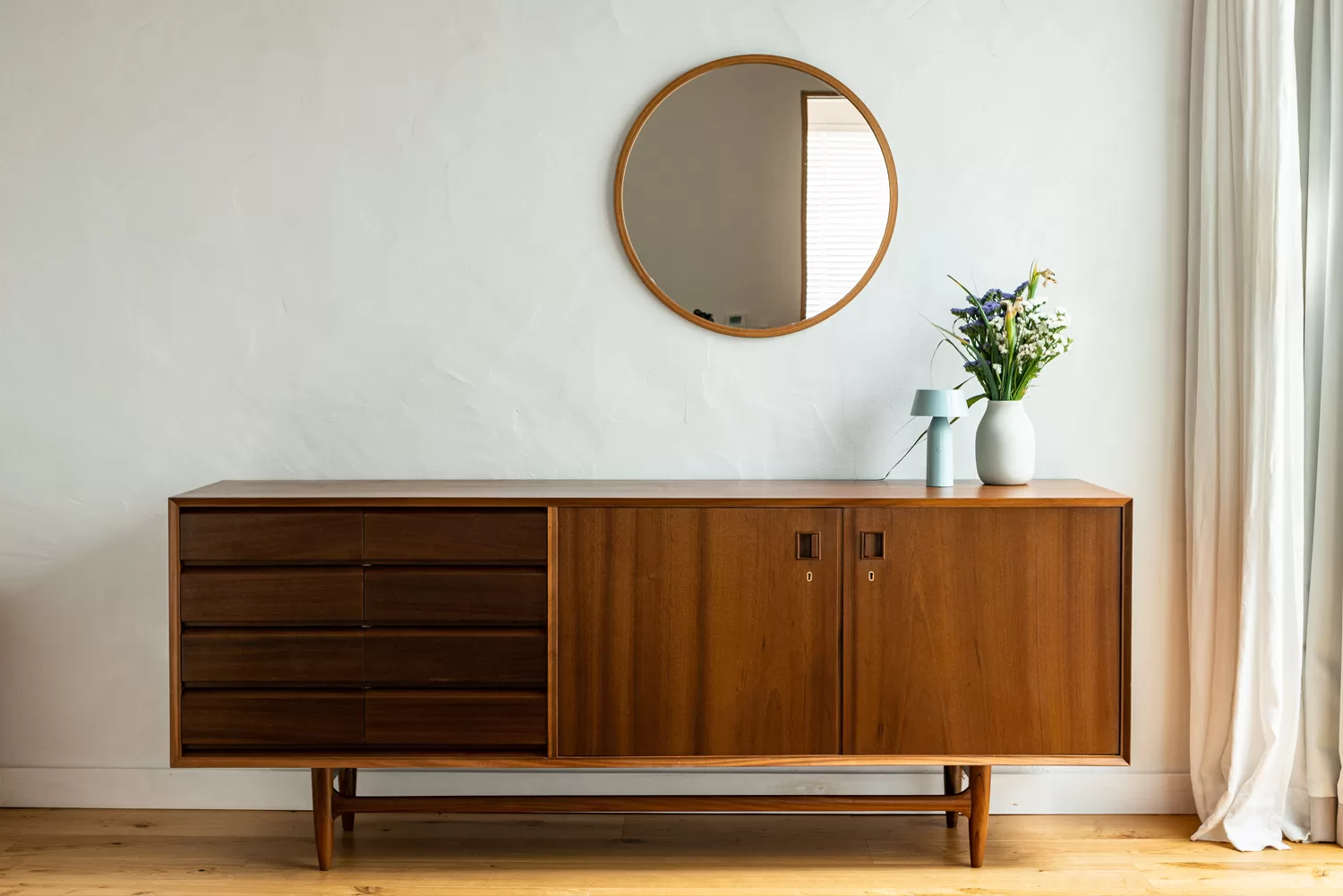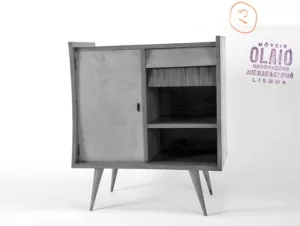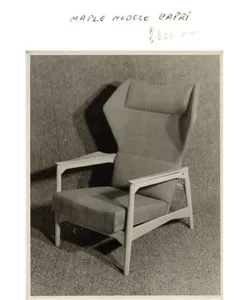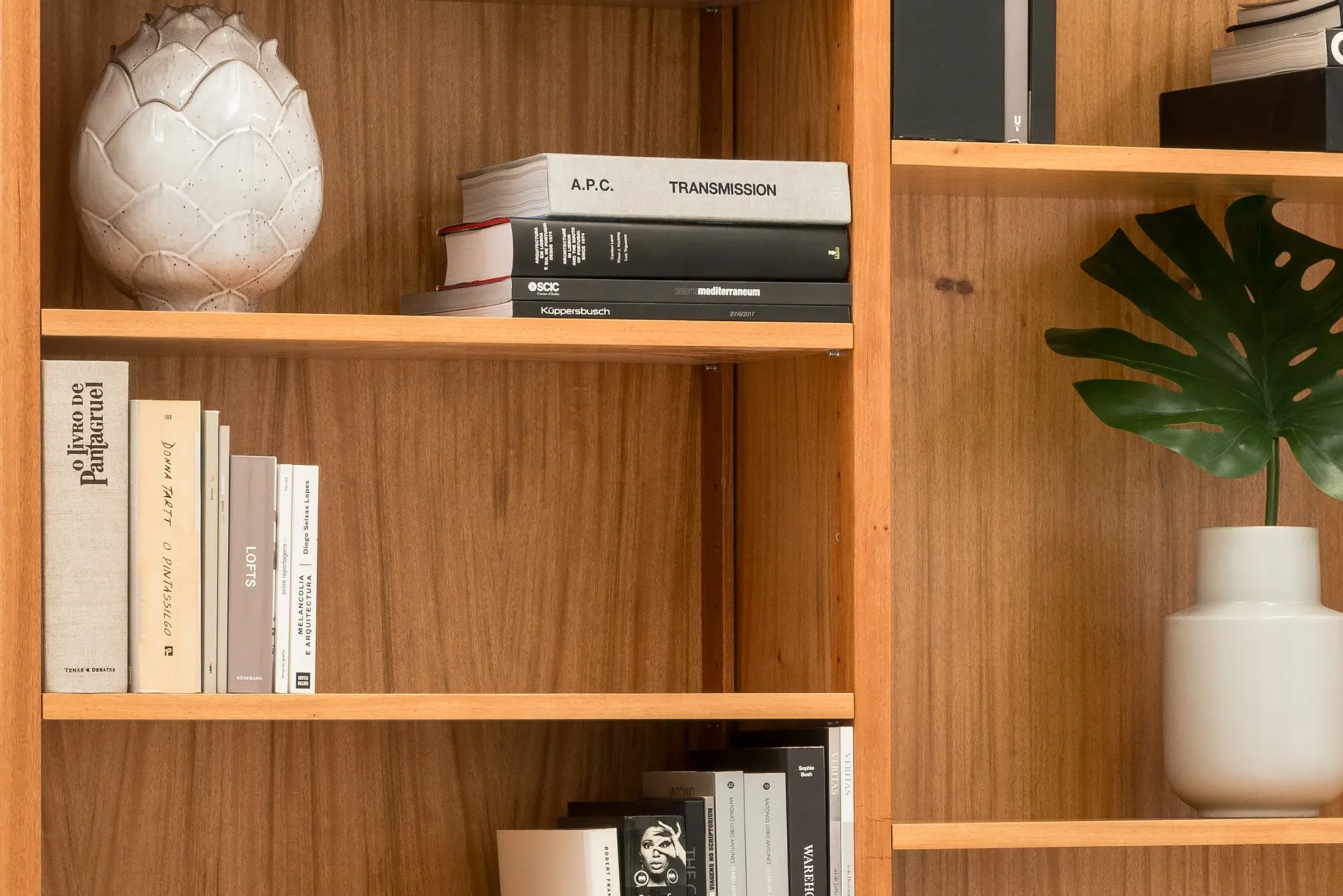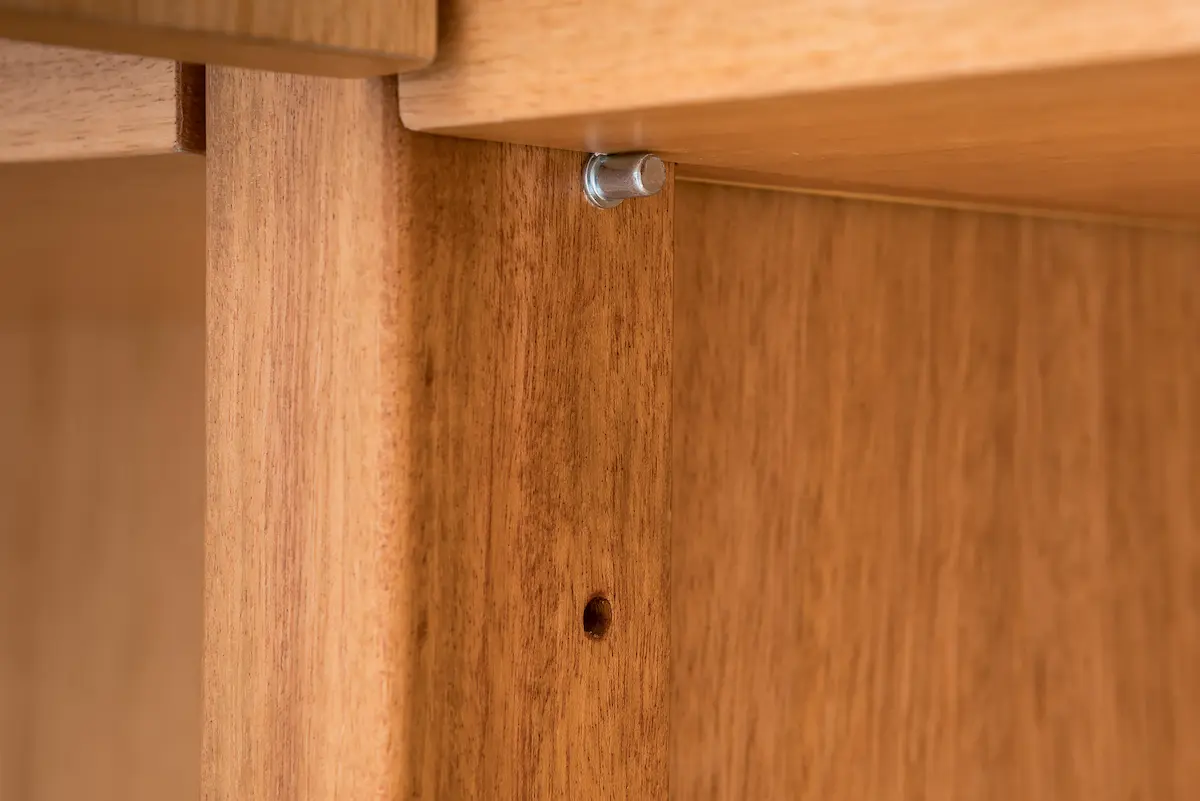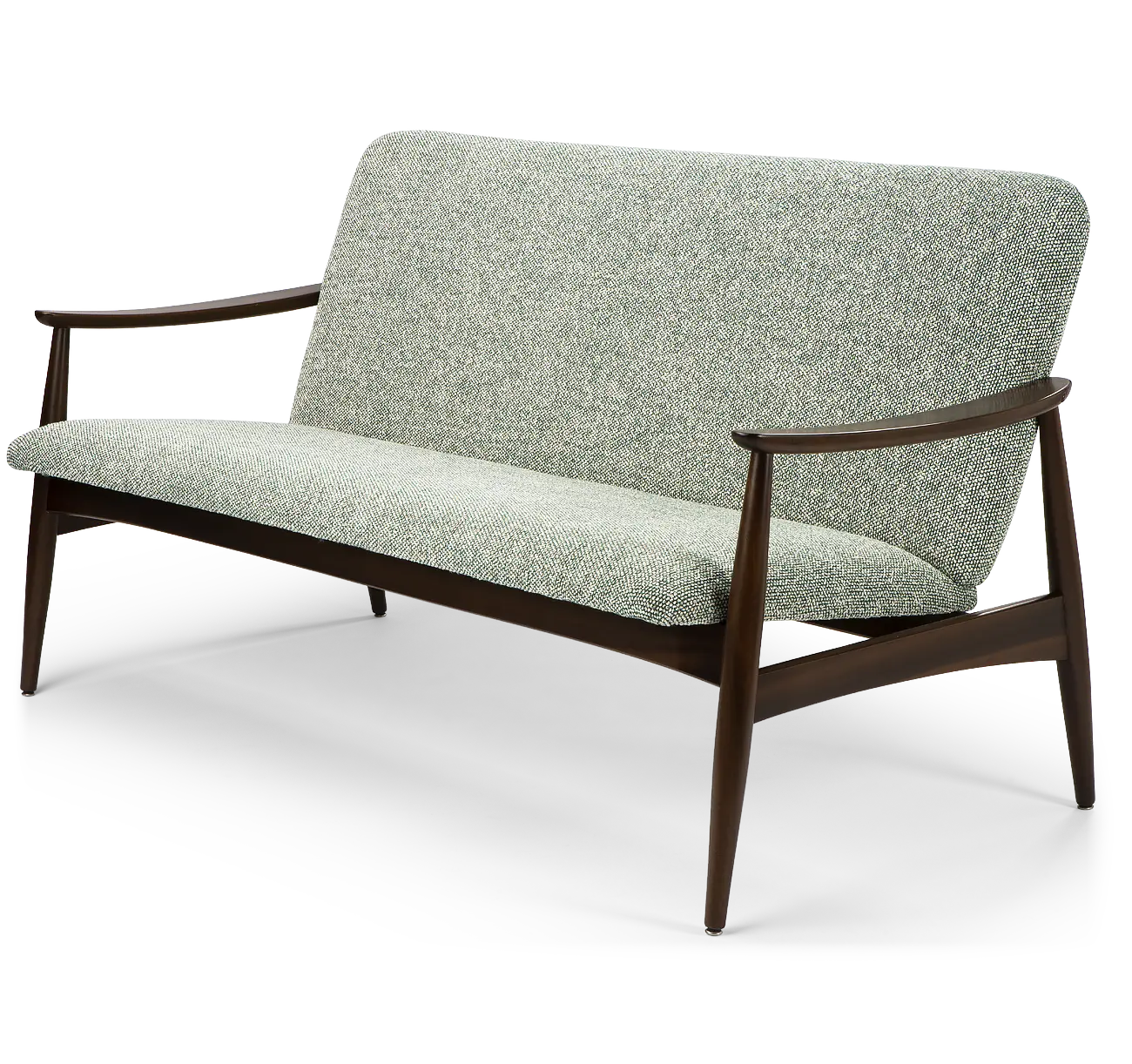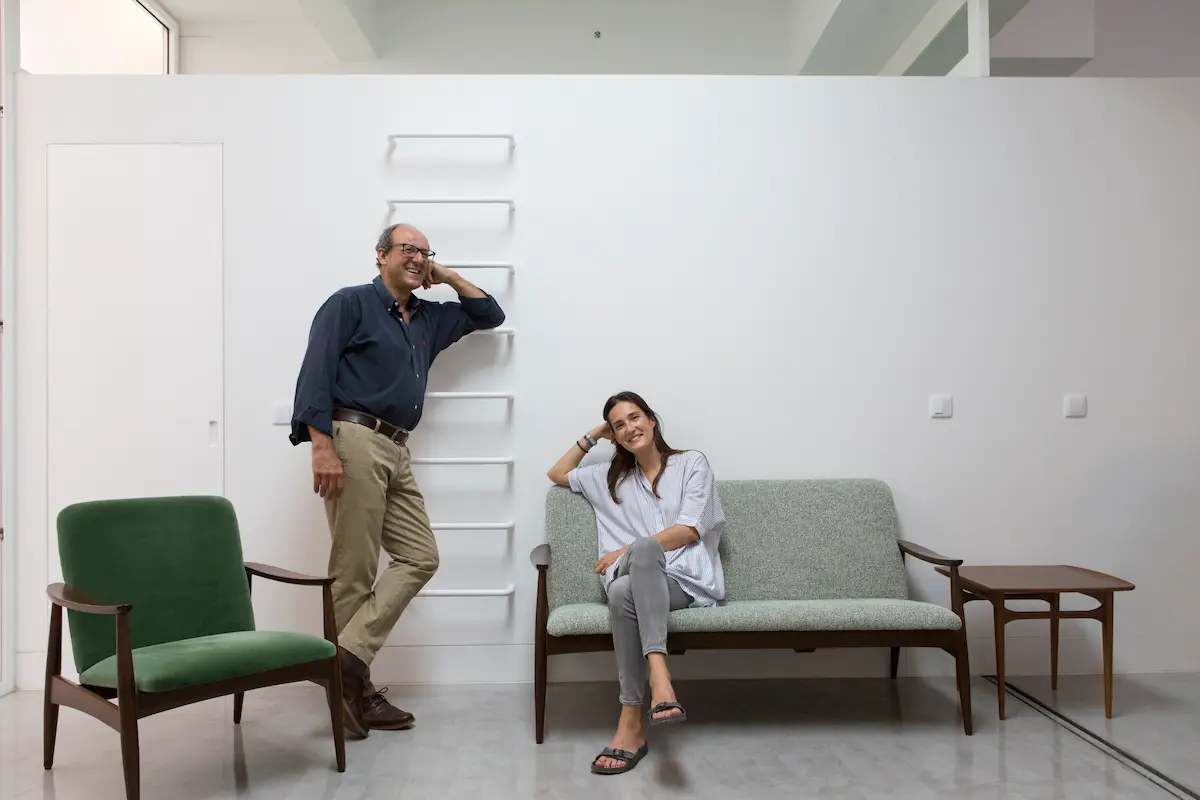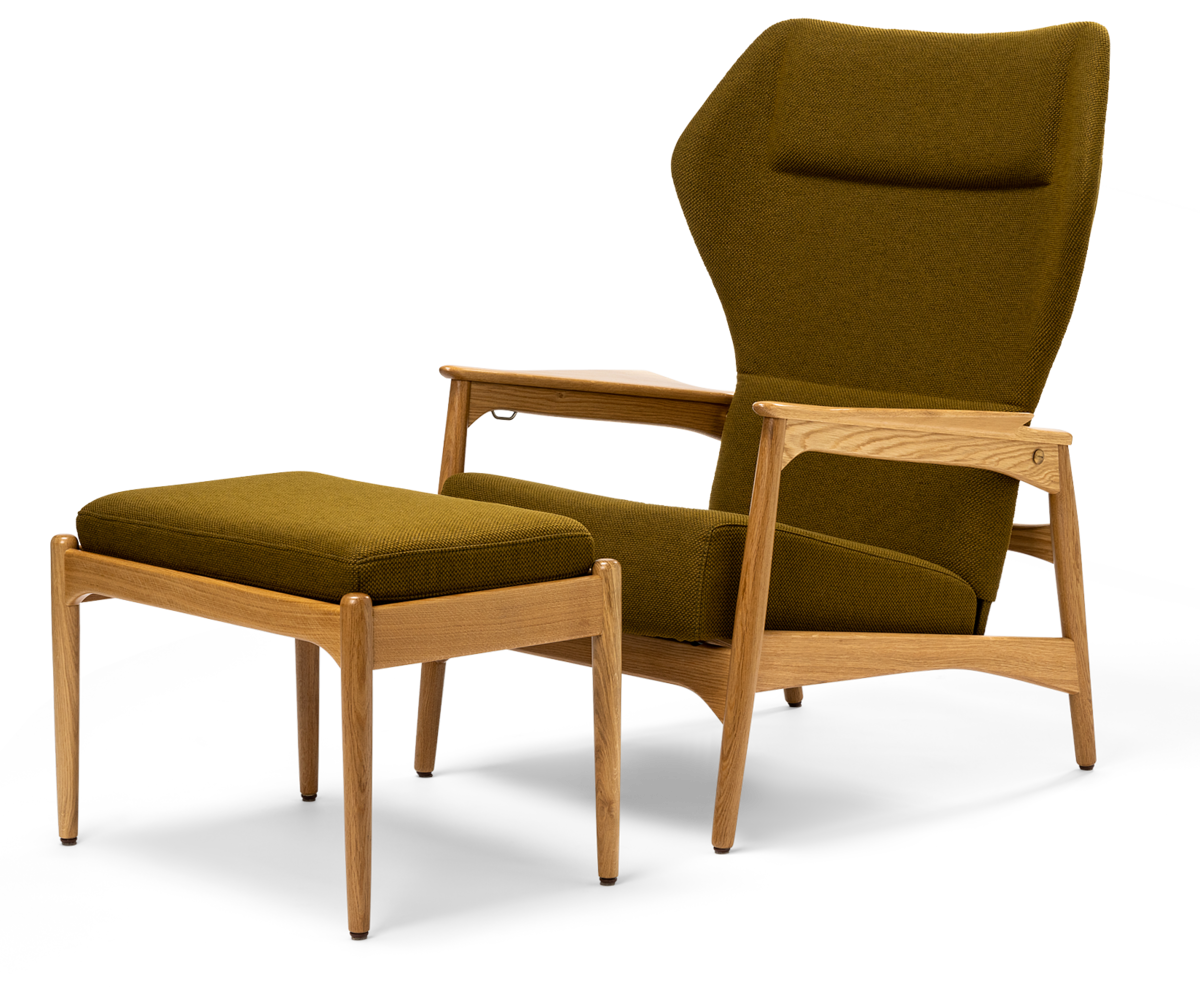Olaio is a symphony between tradition and innovation, that warms Portuguese hearts
Much more than a furniture company, the Olaio brand is an intrinsic part of the emotional and material heritage of several generations of Portuguese people.
Over the years, the chairs and armchairs manufactured by Olaio have become silent witnesses of the history of Portugal, offering comfort and elegance to countless homes and public spaces. Olaio's fascinating story begins with two modest crates. In the year of 1860, a young carpenter named José Olaio acquires these two wooden crates from Casa Havanesa and, masterfully covers them with mahogany root leaf, transforming them into two elegant bedside tables. This episode is just a glimpse of the incredible motivation it would take, years later, to the opening of a furniture store on the picturesque Rua da Atalaia, in Lisbon.
Was 1918, in partnership with your child, Tomáz José Olaio, José Olaio founded the “José Olaio & C (Son)”. They set up a carpentry workshop in the heart of Bairro Alto, which marked the beginning of the company's modernization. The strategic location in the center of the capital played a crucial role in its consolidation, since it served a diverse clientele that even included the Portuguese State.
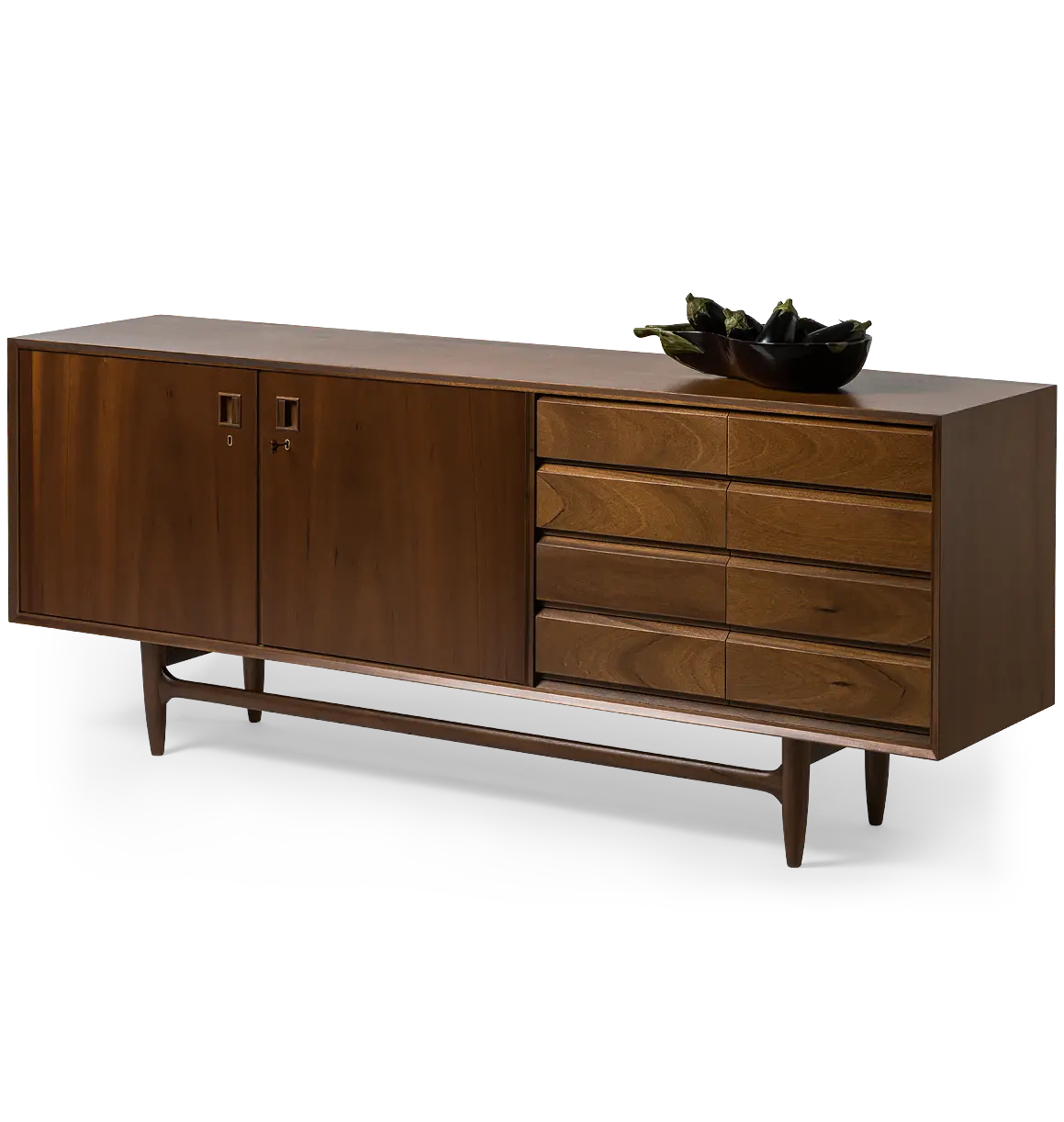 The decade of 1930, already without its founder, saw Olaio expand to a workshop in the Lisbon Penitentiary and later open a manufacturing unit in Loures. In this period, Olaio was not limited to home furnishings, and began producing furniture for various public spaces, like schools, universities, ministries, inns, hospitals and public offices. The reach of this Portuguese brand reached Parliament and the Government Room of the National Assembly, with furniture designed by renowned architect Raul Lino (1879-1974). Other artists and designers, as Loyal of the Chamber (1876-1948) and Thomaz de Mello (1906-1990), contributed equally to notable designs, including children's furniture.
The decade of 1930, already without its founder, saw Olaio expand to a workshop in the Lisbon Penitentiary and later open a manufacturing unit in Loures. In this period, Olaio was not limited to home furnishings, and began producing furniture for various public spaces, like schools, universities, ministries, inns, hospitals and public offices. The reach of this Portuguese brand reached Parliament and the Government Room of the National Assembly, with furniture designed by renowned architect Raul Lino (1879-1974). Other artists and designers, as Loyal of the Chamber (1876-1948) and Thomaz de Mello (1906-1990), contributed equally to notable designs, including children's furniture.
In the decade of 1950, and until the years 1970, Olaio brought designer José Espinho on board (1916-1973), responsible for gradually introducing new furniture models, adopting a functionalist approach inspired by Scandinavian modernism. In this period, Olaio's furniture stood out for its refined shapes and functionality, without unnecessary adornments. The company followed the growth of tourism in the decades 1960 , 1970, becoming a supplier of renowned hotels such as the Ritz, Tivoli and Estoril-Sol, in addition to theaters such as the Monumental, Eden and Capitol, as well as the iconic Império and Mexicana cafes, in Lisbon among others.
The tourism boost has not only increased Olaio's clientele, but also allowed the company to expand its services to the decoration area, offering a complete interior decoration service. In this time of great growth, Olaio has stood out as a vital force in the furniture and decoration industry in Portugal.
Until the final decades of the 20th century, Olaio illuminated the hearts of countless compatriots. Your furniture, chairs, bookshelves, sofas and sideboards didn't just decorate private homes, but they also filled the most emblematic public spaces, from post offices and hospitals to schools, ministries, public offices, hotels, theaters, cafes and even Parliament.
Portuguese films, quite emblematic at the time, were also enriched with the presence of Olaio furniture, giving a touch of authenticity to the scenes that portrayed the country's daily life, a fact that happens in today's cinema that recalls experiences and stories from that time.
After a brief interregnum, em 2016, Olaio announced its glorious rebirth. It was the starting point for a new era for this Portuguese furniture production brand,s of excellence. Under the leadership of João Olaio and Renata Vieira, the brand restarts the creation of some pieces with care and dedication, and adds models and variants that follow trends, where furniture is the result of a meticulous process, shaped by the skilled hands of artisans dedicated to the craft of wood, the essence of Olaio. This perpetuates a tradition that transcends generations, keeping the flame of your legacy alive.
From 2016, then begins to produce furniture with an eye towards the future. All of the brand's pieces and treasures are created responsibly and ethically, aiming for a more sustainable world, acting only and only on request. Respect for legacy, environmental awareness and commitment to quality, became the fundamental pillars of Olaio’s new phase.
Today, when someone purchases an Olaio piece, is taking home, office or business space more than just furniture; is taking with it part of Portugal's history. Each piece is a time capsule that unites the past, present and future. It is a testament to José Olaio's passion for craftsmanship and the ongoing commitment of the Olaio family, to keep this tradition of excellence alive.
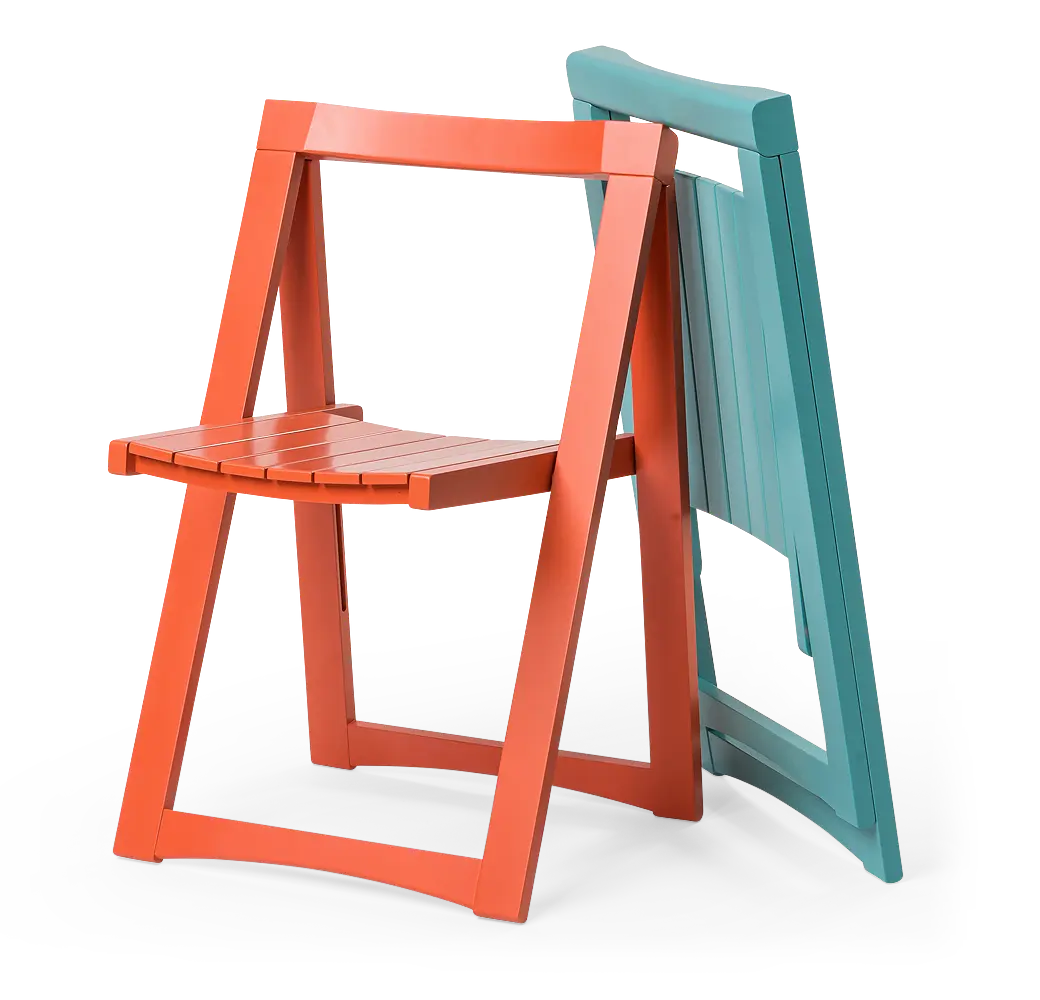 This is an example of how a brand can evolve over the years, keeping its essence and values intact. It is a good example of how the past can be an inexhaustible source of inspiration for the future., maintaining the harmony between tradition and innovation that warms the hearts of the Portuguese, and enchants the world with its unique story of exceptional furniture.
This is an example of how a brand can evolve over the years, keeping its essence and values intact. It is a good example of how the past can be an inexhaustible source of inspiration for the future., maintaining the harmony between tradition and innovation that warms the hearts of the Portuguese, and enchants the world with its unique story of exceptional furniture.
Olaio is a Portuguese brand referenced in Mapas Portugal Faz Bem de Brands with all your Contacts and Technical Data Sheet. Also find out which Sustainable Development Goals the Olaio elected as priorities.
